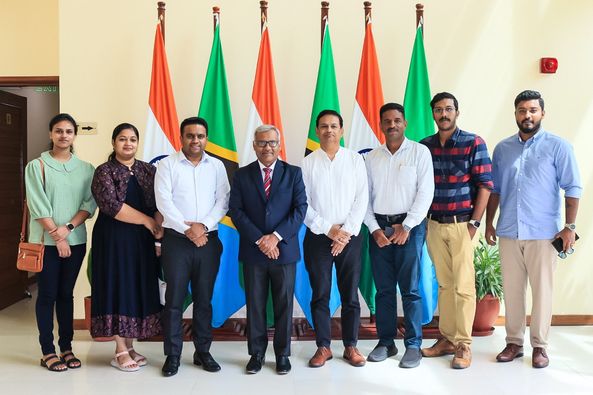- +254 (72)-041-0460
- gradschool@crystalperk.com
- Kaunda Ave, Kizingo, Mombasa, KE
The Postgraduate Certificate in Hospitality & Tourism Sector Innovation & Entrepreneurship is designed to equip professionals with the tools, strategies, and methodologies needed to develop entrepreneurial leaders capable of identifying systemic constraints in the Hospitality & Tourism sector and transforming them into profitable innovation opportunities using the the Decalogue Management Methodology and Theory of Constraints (TOC) thinking processes. Participants will gain the tools, mindset, and confidence to launch validated business solutions that create sustainable value.

This course blends systems thinking, entrepreneurial innovation, and practical business execution. It guides participants through diagnosing complex challenges in hospitality and tourism using TOC, crafting robust win-win solutions, and implementing them through a real-world capstone innovation project that must show validation, revenue, or investment traction.
The final project, Profitable Innovation Project (PIP), offers participants the opportunity to develop a real-world hospitality and tourism innovation that is validated with users and demonstrates financial viability or investment traction.
STARTS ON
DURATION
PROGRAM FEE
1st installment amount to be received within 2 days from the day application is accepted
View Payment Plans
This program is ideal for:
Module One: Breakthrough Thinking for Continuous Innovation in Hospitality & Tourism Sector
Unblocking mental constraints to enable innovation
Topics Covered:
Key Learning Outcomes:
Module Two: Crafting Complete, Thought-through Solutions for a Desirable Future in Hospitality & Tourism Sector Innovation & Entrepreneurship
Designing robust, future-ready business solutions
Topics Covered:
Key Learning Outcomes:
Module Three: Systemic Strategy and Implementation in Hospitality & Tourism Sector Innovation & Entrepreneurship
Building strategic execution maps
Topics Covered:
Key Learning Outcomes:
Module Four: External Constraint in Hospitality & Tourism Sector Innovation & Entrepreneurship
Developing and communicating an “unrefusable offer”
Topics Covered:
Key Learning Outcomes:
Module Five: Project Phase
From Thinking to Doing: Building a TOC-Based Hospitality or Tourism Venture
Topics Covered:
Key Learning Outcomes:
Support Provided:
The program is divided into 4 learning modules (8 months), followed by a 4-month applied entrepreneurial project to create and launch an industry-relevant solution.
It can be hard to know what financial help is available to you as a student.
Further information about the variety of options that can help fund your studies and maximise the money available to you is available on our funding your studies section.
While there are no compulsory additional costs associated with this course, there may be general additional costs that you may incur as a student. A list of the sort of costs you might expect can be found on our fees and finance section.
We award limited scholarships to local and international students on the basis of academic excellence, personal circumstances or economic hardship.
Upon successful completion of all modules and final project, participants receive:
Postgraduate Certificate in Entrepreneurial Leadership in Hospitality & Tourism with specialization in the Decalogue Management Methodology and TOC Thinking Processes
The final project, Profitable Innovation Project (PIP), offers participants the opportunity to develop a real-world hospitality and tourism innovation that is validated with users and demonstrates financial viability or investment traction.
Flexible payment options available. View payment plans
At CGSE, we’re committed to supporting your success, well-being and future ambitions.
We’re here to provide everything you need to make the most of your time with us, ensuring you not only excel in your studies, but also step confidently into the world of graduate employment.
The programme is underpinned by the research expertise of world-leading academics in the areas of entrepreneurship, innovation, digitally enabled business models, circular economy, and sustainability.
Make an enquiry about this course, and sign up for news updates about studying at CGSE.